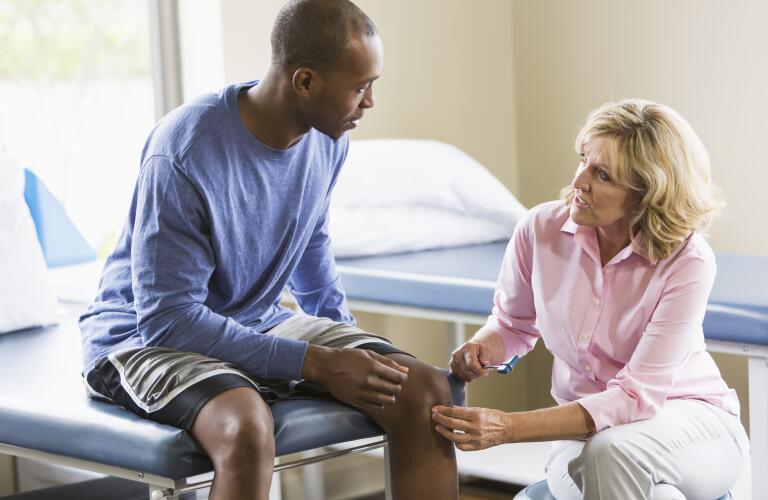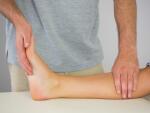
Knee pain is a common complaint, especially as you age and your joints experience a lot of wear and tear. Injuries can also cause knee pain. There are different kinds of knee pain. Often, the kind of knee pain you have is a clue to what’s wrong. Describing your pain to your doctor in detail will help you and your doctor determine the cause and find the right treatment.
The more specific you can be about describing your knee pain and when it happens, the better. Start by describing the circumstances surrounding the pain:
- Is your pain worse in the morning or after a period of inactivity?
- Is your pain worse at noon after you’ve been moving around for a while, or at night after you’ve been very active all day?
- Is your pain worse after a particular activity, such as walking, climbing stairs, kneeling to wash the kitchen floor, squatting in the garden, or biking with your kids?
Tell your doctor if your pain is sharp or throbbing and whether it is constant or intermittent—it comes and goes. Describe what you do to relieve the pain, and what success you've had.
Here are some other questions to ask yourself to help clarify what you’re experiencing:
- Is your knee swollen? Usually swelling will be visible, but sometimes it’s subtle. Sometimes, morning swelling has gone down by the time of your afternoon doctor’s appointment. Use your smartphone to snap and share a picture of your "morning knees."
- Do you feel a grinding or crunching sensation? Grinding feels like two rough surfaces are moving against one another. This could be bone rubbing against bone, like your shinbone and thighbone.
- Do you feel your knee snap, pop, or crack on occasion? Tell your doctor if you hear noises coming from your knee.
- Do you feel your knee weakening when you walk, as though it’s unstable and won’t hold your weight and could buckle? When this happens, do you think that you might need to grab onto something so you won’t fall?
- Does your knee lock? Locking prevents your knee from straightening out fully.
- Does your knee pain cause you to limp or walk without putting pressure on that leg?
Here are some additional prep steps you can take before and during your office visit to make the most of it:
- Keep a pain diary. For a week before your doctor’s appointment, keep track of your knee pain on paper or the computer. Log the time of day when your pain is at its worst and what you are doing when it hurts. You may see a pattern that will make it easier for you to describe your symptoms.
- Rate your pain. Your doctor may ask: On a scale of one to 10, one being slight and 10 being unbearable, how would you rate your pain? Note your ratings in your pain diary and bring it with you to your doctor’s appointment.
- Talk about limitations. Tell your doctor if your pain prohibits you from doing specific activities or tasks, such as climbing stairs or going grocery shopping. Talking about how the pain is affecting your daily activities gives him or her clues to work with.
- Prioritize your concerns. Write down your most pressing concerns and order them from most important to least important. That way you’re sure to at least discuss your most important concerns during the limited time you have at your visit.
- When talking to your doctor about knee pain, be as specific as possible.
- Describe when it hurts, where it hurts, and what it feels like when it hurts.
- Discuss activities that make your knee pain feel worse and what activities make it feel better.



